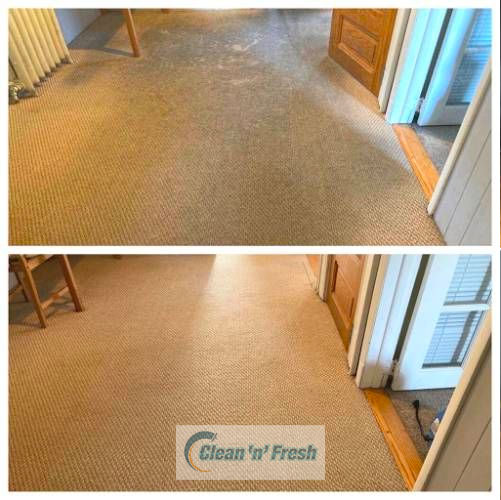As a professional hardwood floor cleaner, I’ve had my fair share of experiences with both hardwood and engineered wood floors. Each type brings its own set of characteristics, benefits, and challenges to the table. Hardwood floors, known for their durability and timeless appeal, are a favorite among those who cherish natural beauty and tradition.
On the other hand, engineered wood floors offer a practical and cost-effective alternative, boasting moisture resistance and a variety of installation options that appeal to a modern aesthetic. Through my observations, I’ve seen how these flooring choices respond differently to wear, tear, and cleaning methods, impacting their longevity and maintenance needs. This article dives into the nuances of hardwood versus engineered wood from my perspective, shedding light on what makes each option unique and how they meet the diverse needs and preferences of homeowners.
Whether you’re drawn to the classic charm of hardwood or the versatile appeal of engineered wood, understanding their distinct advantages can help you make an informed decision for your home.
What is Hardwood Flooring?
Hardwood flooring is a popular choice for homeowners and interior designers alike, revered for its durability, natural beauty, and timeless appeal. Crafted from solid wood harvested from a variety of trees such as oak, maple, and walnut, hardwood floors offer a level of versatility and warmth that is unmatched by other flooring options. Its robust nature means it can withstand the rigors of daily life, making it an ideal choice for high-traffic areas in homes and commercial spaces.
Beyond its practical benefits, hardwood flooring also adds value to properties, enhancing their aesthetic appeal and market worth. With a range of finishes, grains, and colors, hardwood flooring can be customized to fit any design style, from traditional to contemporary, making it a fundamental element in interior design that caters to a wide array of tastes and preferences.
What is Engineered Wood Flooring?
Engineered wood flooring is a cost-effective alternative to traditional hardwood, celebrated for its moisture resistance and flexible installation options. It is constructed from multiple layers; the top layer is real wood, which provides the aesthetic appeal of hardwood. Beneath this, layers of plywood or fiberboard give the flooring its stability and make it less susceptible to changes in humidity and temperature.
This unique structure allows engineered wood to be used in areas where hardwood might be impractical, such as basements or directly over concrete slabs. Its ease of installation, which can include floating, gluing, or stapling, makes it a favored choice among homeowners who seek a durable yet stylish flooring solution that can easily adapt to a variety of environments and design preferences.
Why Choose Hardwood Flooring?
Choosing hardwood flooring brings aesthetic appeal and natural beauty into a home, creating a warm and inviting atmosphere. Its longevity stands out, with the ability to refinish multiple times, extending its life and versatility over decades. Hardwood floors also add value to homes, making them a desirable feature for potential buyers.
This flooring type offers a timeless appeal that complements various interior design styles, from classic to modern, ensuring that the investment enhances the overall look and feel of any space.
Aesthetic Appeal and Natural Beauty
Hardwood floors offer unmatched natural beauty and aesthetic appeal, instantly elevating the look of any room. Their unique grains and colors bring a piece of nature indoors, creating a cozy and inviting atmosphere.
Longevity and Ability to Refinish
One of the most significant advantages of hardwood flooring is its longevity. These floors can last for decades and can be refinished several times to remove scratches and wear, making them look brand new again.
Adds Value to Homes
Investing in hardwood flooring can significantly increase the value of a home. Its timeless appeal and durability make it a sought-after feature among potential home buyers, enhancing the property’s marketability and appeal.
Why Choose Engineered Wood Flooring?
Engineered wood flooring offers better moisture resistance than traditional hardwood, making it an ideal choice for areas prone to dampness. It is more cost-effective, providing the look and feel of hardwood at a fraction of the price. Additionally, engineered wood presents easier and more flexible installation options, including the ability to be installed over concrete or radiant heating systems, making it a versatile choice for various settings.
Its layered construction enhances durability and resistance to environmental changes, appealing to homeowners looking for a practical yet beautiful flooring solution.
Better Moisture Resistance Than Hardwood
Engineered wood flooring boasts superior moisture resistance compared to traditional hardwood. This attribute renders it an excellent choice for moisture-prone areas such as basements, bathrooms, and kitchens, where traditional hardwood might not perform as well.
More Cost-Effective Than Hardwood
Engineered wood offers the elegant appearance of hardwood at a more affordable price, making it a cost-effective solution for those desiring the hardwood look without the associated costs. Its affordability enables a broader audience to enjoy the beauty of wood flooring in their homes.
Easier and More Flexible Installation Options
The installation of engineered wood flooring is notably more versatile and less labor-intensive than that of traditional hardwood. It can be floated, glued, or stapled over various subfloors, including concrete and radiant heating systems, offering greater flexibility in application and the potential for homeowners to undertake DIY projects.
How Do Hardwood and Engineered Wood Floors Respond to Cleaning?
Hardwood floors are sensitive to water and harsh chemicals, requiring gentle, specific cleaners to avoid damage. In contrast, engineered wood floors, while also preferring mild cleaning solutions, tend to be more forgiving with moisture exposure due to their construction. Over time, hardwood can show wear but can be refinished, whereas engineered wood’s top layer can wear, limiting refinishing options.
Regular maintenance, such as sweeping and dry mopping, is crucial for both types to extend their beauty and life.
Sensitivity to Water and Harsh Chemicals
Hardwood floors exhibit a notable sensitivity to water and can suffer damage from harsh chemicals. To safeguard these floors, employing cleaners specifically formulated for hardwood is crucial to prevent adverse effects like warping and discoloration.
Differences in Wear and Tear Over Time
With the passage of time, hardwood floors may display signs of wear such as scratches and dents. Fortunately, they possess the ability to be refinished, offering a rejuvenated appearance. In contrast, engineered wood, while also resilient, features a top layer susceptible to wear, which may limit the feasibility of refinishing, distinguishing it from hardwood’s refurbishing capabilities.
Maintenance Tips for Hardwood Floors
To maintain the beauty and longevity of hardwood floors, regular sweeping and dry mopping are essential to remove dust and debris. In the event of spills, it’s crucial to clean up immediately to prevent water damage. Utilizing specific hardwood cleaners can ensure the floor’s finish remains intact and lustrous without causing harm.
These simple yet effective practices help in preserving the natural elegance and durability of hardwood flooring over time.
Regular Sweeping and Dry Mopping
Engaging in regular sweeping and dry mopping plays a crucial role in removing dust and debris. This simple routine helps in preventing scratches and maintaining the floor’s natural luster over time.
Immediate Cleanup of Spills
Immediate cleanup of spills is paramount in safeguarding hardwood floors against water damage and stains. Prompt action ensures the preservation of the wood’s integrity and aesthetic appeal.
Use of Specific Hardwood Cleaners
Utilizing specific hardwood cleaners is essential for protecting the floor’s finish. These specially formulated products enhance the wood’s natural beauty without risking damage, ensuring a clean and vibrant floor surface.
Maintenance Tips for Engineered Wood Floors
Maintaining engineered wood floors involves using a damp mop instead of a wet one to prevent moisture damage. Avoiding steam cleaning is crucial as the intense heat and moisture can harm the flooring. For cleaning, recommended products for engineered wood should be used to ensure the surface remains undamaged and retains its appearance.
Following these guidelines helps in preserving the durability and beauty of engineered wood flooring, ensuring it remains an attractive part of the home for years to come.
Use of Damp Mop Instead of Wet
For engineered wood floors, using a damp mop instead of a wet one is crucial. This practice helps in preventing moisture penetration that could compromise the floor’s structural integrity and aesthetic appeal.
Avoidance of Steam Cleaning
Avoiding steam cleaning on engineered wood floors is vital. The high levels of heat and moisture introduced by steam cleaning can lead to warping, delamination, or other forms of damage, thus maintaining the floor’s condition and appearance requires steering clear of this method.
Recommended Cleaning Products for Engineered Wood
Employing recommended cleaning products for engineered wood is essential for proper maintenance. These specially formulated products ensure effective cleaning without risking damage to the floor’s finish or structure, preserving the engineered wood’s beauty and longevity.
My Personal Observations on Durability
In my experience as a wood floor cleaner, I’ve observed that hardwood floors tend to be remarkably durable over time, capable of withstanding decades of use with proper care. They can, however, be vulnerable to scratches and dents, especially in high-traffic areas. On the other hand, engineered wood floors also show good durability but their top layer can wear over time, particularly in areas of heavy use.
Despite this, both types of flooring can last for many years when maintained correctly, making them a valuable investment for any home.
Hardwood’s Vulnerability to Scratches and Dents
Despite its overall durability, hardwood flooring is susceptible to scratches and dents. These imperfections are more likely to occur in high-traffic areas, where the constant movement and activity can impact the floor’s surface integrity.
Engineered Wood’s Top Layer Wear Over Time
The top layer of engineered wood flooring can exhibit signs of wear over time, particularly in well-used areas. This wear is due to the finite thickness of the top wood veneer, which, once worn, cannot be easily refinished or replaced, affecting both the floor’s aesthetics and its durability.
My Personal Observations on Customer Satisfaction
From my experience, customers with hardwood floors often express a deep appreciation for the traditional aesthetics and natural beauty these floors bring to their homes. They value the ability to refinish hardwood, seeing it as a long-term investment that maintains its allure over time. Conversely, those who opt for engineered wood flooring tend to favor its modern appeal and ease of maintenance, particularly in homes with high moisture levels or where cost is a significant consideration.
Feedback on engineered wood often highlights satisfaction with its durability and how well it meets the demands of contemporary living, despite some concerns over the longevity of its top layer. Families with small children and pets especially love engineered floors.


Hardwood’s Preference for Traditional Aesthetics
Customers often gravitate towards hardwood floors for their classic and traditional aesthetics. The inherent natural beauty and distinctive character of hardwood make it a favored choice for adding warmth and sophistication to any space.
Engineered Wood’s Popularity in Modern Homes
Engineered wood flooring has seen a surge in popularity within modern homes, attributed to its adaptability and contemporary appeal. It provides a viable option for moisture-prone areas, marrying durability with the authentic look of hardwood, which resonates well with modern design preferences.
Feedback on Maintenance Ease and Longevity Concerns
Customer feedback highlights the ease of maintenance as a key factor contributing to the satisfaction with both hardwood and engineered wood floors. Nonetheless, there are voiced concerns about the longevity of the engineered wood’s top layer, with some customers questioning its durability over time, especially in comparison to the enduring nature of solid hardwood.
Need floor cleaning of any kind?
We deep clean carpets, tile floors, area rugs, upholstery and hardwood floors. Check out our reviews. You won’t be disappointed and we have a 100% satisfaction guarantee to prove it.


- Beware cheap carpet cleaning companies. They’re not what they seem. - October 21, 2024
- How to remove chocolate from your couch - October 21, 2024
- DIY couch cleaning - October 21, 2024





